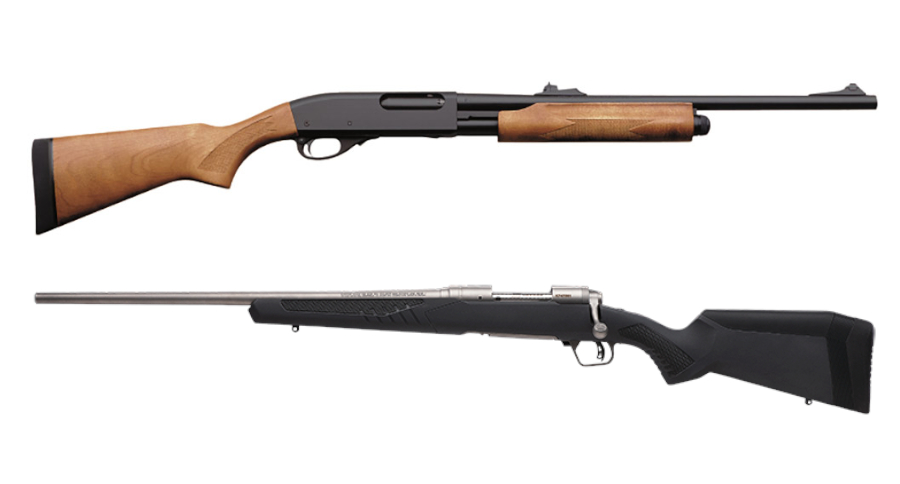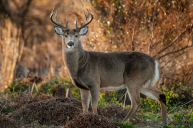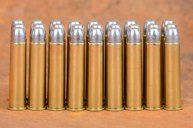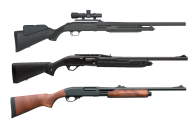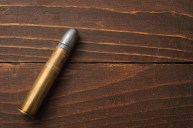Is a shotgun or a rifle better for your upcoming deer season?
When it comes to firearms for deer hunting, it seems like rifles are king. However, there is a rich history of using shotguns during deer season too. Both kinds of firearms are more than capable of downing whitetails and mule deer consistently. Whole generations of deer hunters have used one or another to consistently put venison on the table. During the depression, slugs were devised as a cheap way to down deer for struggling families and they did just that.
Today we figured we would look at the pros and cons of deer rifles and shotguns. We will explain different scenarios where each is appropriate.
Who knows? You may just find yourself toting a different kind of firearm into the deer woods this season.
Shotgun-Only Zones

Travis Smola
We should probably kick this debate off with a little 101 about places that are traditionally shotgun-only for deer. Mainly, I am talking about the Midwest United States. For those unfamiliar, when states like Michigan, Indiana, Ohio, Illinois and Iowa drafted up their hunting regulations, lawmakers decided that centerfire rifles were too powerful or had too great of an effective range to be used in these states. Out of safety concerns for urban areas.
That means that hunters like myself, who live in Michigan's "Zone 3" aka: the shotgun zone, cannot use some of the most popular deer rifle calibers on the market like .308, .300 Winchester Magnum, .270, etc. Unless of course I were to drive north and cross an invisible line where it somehow magically becomes safe to use a rifle in the eyes of the law, but I digress.
Some states like Indiana, Illinois and Iowa have been completely shotgun-only for decades now. Those of us that hunt these states do not get much personal preference on firearm selection. It is shotguns or nothing. To their credit, most of these states started allowing muzzleloaders during regular firearm seasons in the late 90s and early 2000s. While that helped increase the range for hunters in these areas, most of us still wanted something better. More recently, these states have gradually started to relax their rules to allow "straight wall" cartridges. That means we can use .44, .357, .450 Bushmaster or .350 Legend caliber rifles.
The main reason I mention all this is because I highly doubt shotgun hunting for deer would even be much of a thing if not for this antiquated laws. These laws also help explain a lot of the development of modern slug guns like the Browning A-Bolt that had a rifled barrel and was designed to fling sabot slugs at distances up to 200 yards.
Places where shotguns are preferable
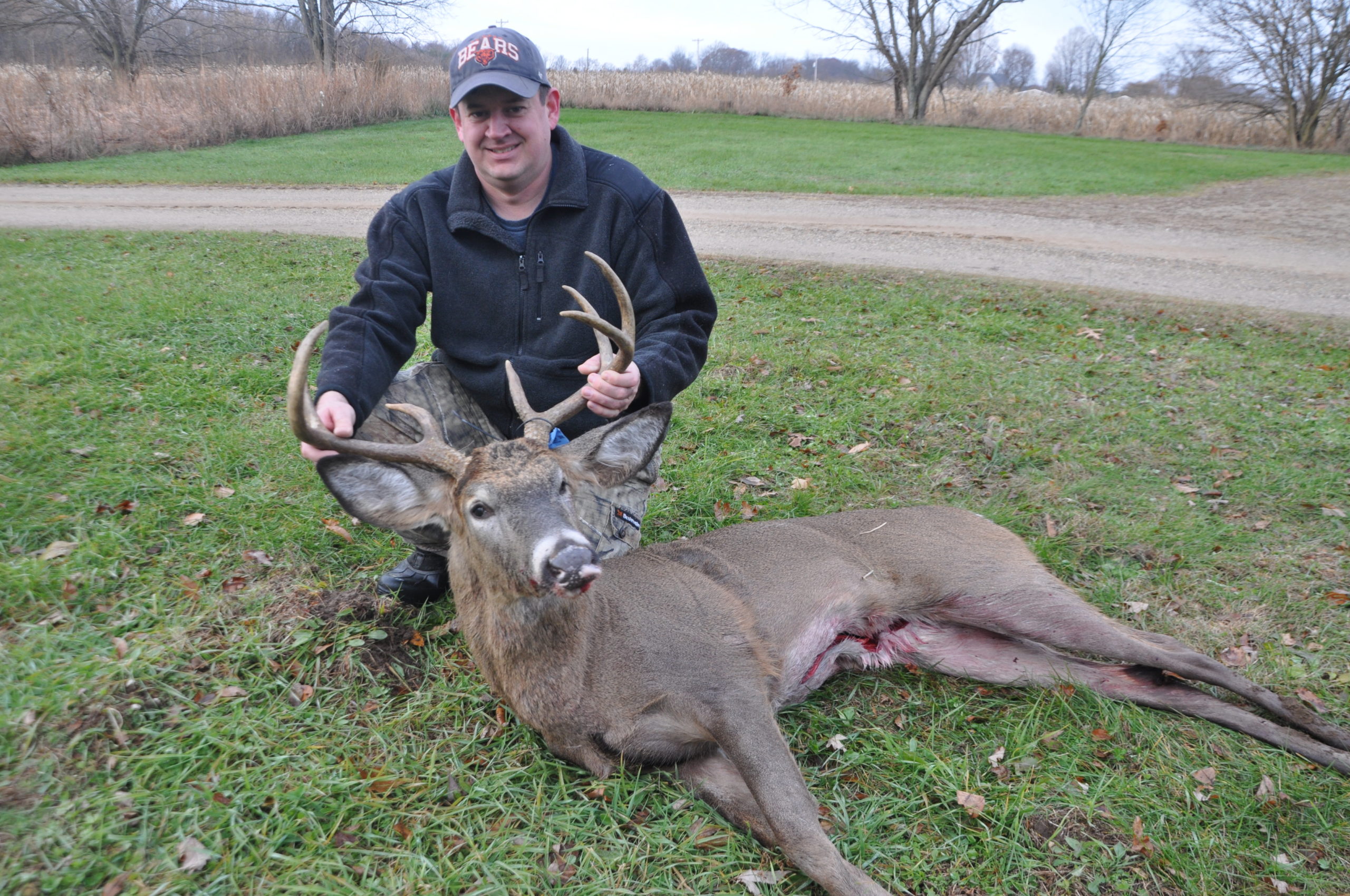
Travis Smola
Other than the states I just mentioned, where shotgun use is all but mandated for deer, there are scenarios where a shotgun is preferable to a rifle. For instance, any time you are doing a deer drive. If you are going to take running shots at a deer, something like the Mossberg 500 pump-action shotgun is great for when that big buck suddenly busts through the brush at close range. Using a shotgun with open sights will help you get on target faster and you will be more likely to get a shot downrange accurately.
Shotguns can also offer for fast follow-up shots in thick, brushy areas where longer range shots are not an option anyway. In my part of Michigan, much of the hunting takes place in densely wooded areas. Even when I am in my treestand, I can seldom see much further than 150 yards in any direction due to all the trees. If I go back in the swamps, the range can get reduced even further. That is just the nature of the hunt here in the Midwest.
For most of my hunting career, I have used a Remington 870 12-gauge shotgun topped with a low power scope and a smoothbore barrel. I usually use foster-style shotgun slugs because they are cheap, efficient, and I do not shoot long range anyway. The buck above I shot last November was quartering away at 25 yards, practically within bow range when I drilled him through the lungs with a slug from a 2 3/4-inch shell.
In my part of Michigan, if I did want to extend my range out to that maximum 150-yard distance, a good rifled slug gun would get the job done. Another upside to using sabot slugs is that ammo generally costs less than many centerfire rifle hunting cartridges.
In addition to deer drives, dog hunters also make extensive use of shotguns loaded up with buckshot. The deer are almost always on a dead run using this technique and when the deer is crashing through dense brush, that is sometimes the only shot the hunter will get.
Places where rifles are preferable
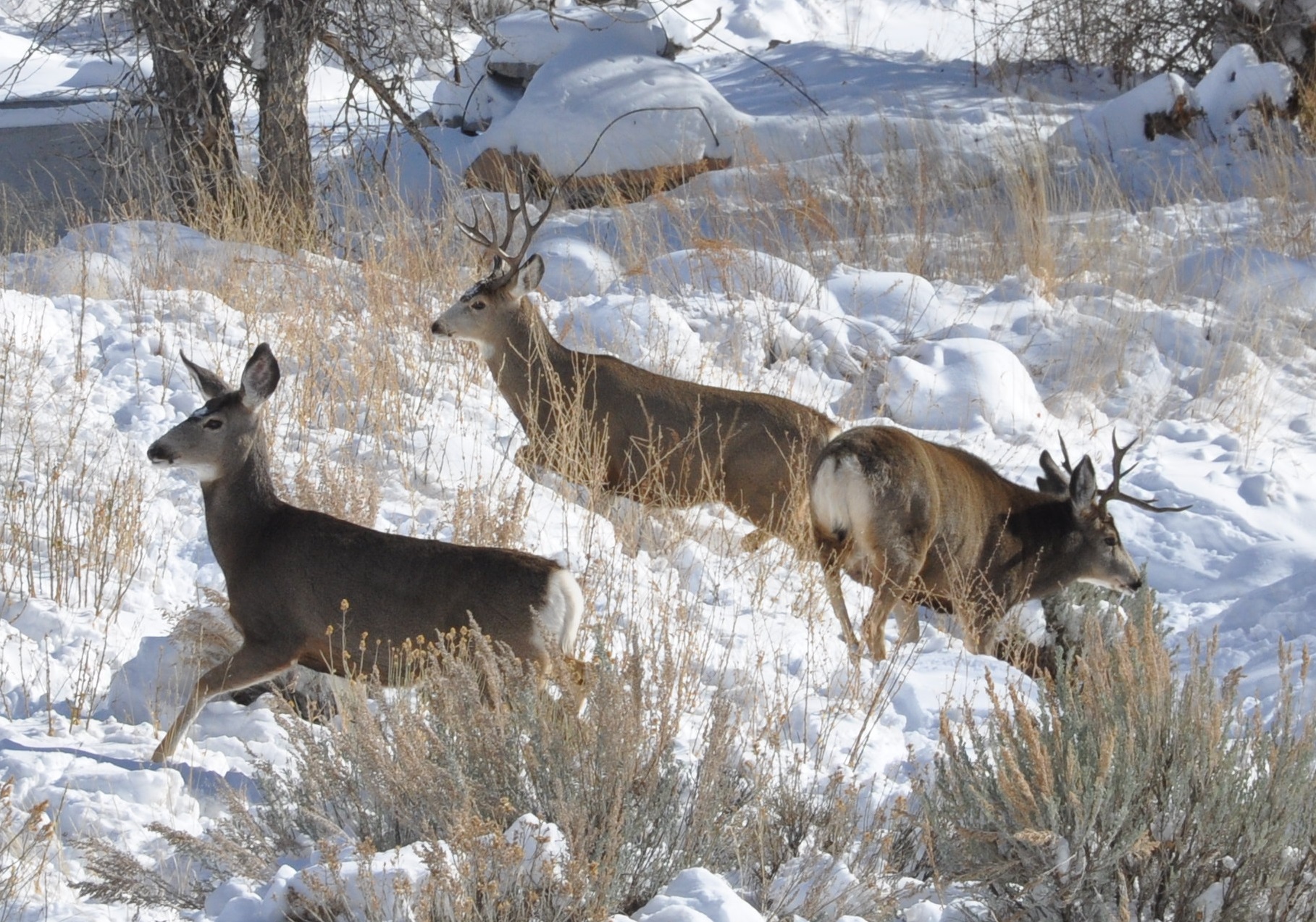
Travis Smola
Obviously, hunting deer with a rifle gives the benefit of a longer range. Depending on the caliber you are using, you could get shots at 300-400 yards or more. The further out, the more ethical the question becomes of course. One huge benefit of rifle bullets is the amount of drop over distance. For instance, a shotgun slug may drop as much as 10 inches at 100 yards. However, a .308 will not drop that far until around 270 yards. Can you guess which one I would rather have in my hands if a big buck steps out at 100 yards? The amount of drop is going to vary from caliber to caliber, but there is no question that rifles out-perform shotgun slugs. If you are looking for consistency and accuracy at distances of 100 yards or more, a rifle is always preferable.
Then there are muzzle velocities differences too. I already mentioned I use Foster-style slugs out of my 870 shotgun. Those slugs, which weigh about an ounce, travel at about 1,500 feet per second. Compare that to a popular straight wall rifle cartridge here in Michigan, the .450 Bushmaster, a large bullet comparable to a .45 ACP. Rifles chambered for this round spit bullets out at nearly 2,200 feet per second. The advantage in bullet speed is obvious.
Bolt-action rifles are almost always preferable for backcountry hunts because most manufacturers design those rifles specifically for lugging up deep washes and ravines miles from the nearest road. They are built to go to where the big game animals are and then deliver long shots accurately and at a distance. If you are high up in the mountains, you do not want that big buck to run down into the next valley. Being able to deliver a shot that drops the animal where it stands is a huge advantage rilfes have over shotguns in this scenario.
There is also the weight consideration. Manufacturers have dropped many hunting rifles down to six pounds. My Remington 870 weighs about eight pounds and is quite unpleasant to carry for extended periods of time. I think I'd rather have a lightweight hunting rifle for a situation like that.
Which is better? Shotgun or rifle?
Honestly, this one is a complete toss-up. One thing I did not mention when I was discussing projectile speeds of that 12-gauge slug and the .450 Bushmaster is the amount of energy delivered. The 12-gauge delivers those Foster-style slugs with around 2,300-foot pounds of energy while the .450 Bushmaster hits with around 2,700-pounds of energy. Not much of a difference.
I know these are two radically different rounds we are talking about, but the greater point is that both are powerful enough to effectively take down a large adult deer. When deciding which firearm to use, consider the distance you will be shooting. In Montana and Wyoming, you are probably going to want that rifle. In the swamps of North and South Carolina? A shotgun may be preferable.
Consider also how far you are willing to let the animal go after the shot. In my experience, shotgun slugs tend to lead to some blood trailing. That buck I shot last year made it over 150 yards despite that slug blowing through both his lungs. Faster rifle bullets seem to deliver more of a shock to the system of an average deer and a shorter recovery. This is important to consider when you are hunting closely to areas that are completely off-limits to hunting.
You cannot go wrong with either firearm. Consider some of the factors we discussed here today to figure out what is going to work best for you this season.
For more outdoor content from Travis Smola, be sure to follow him on Twitter and check out his Geocaching and Outdoors with Travis YouTube channels.
NEXT: OLD HUNTING TACTICS THAT YOU SHOULDN'T BOTHER DOING
WATCH
https://rumble.com/embed/u7gve.v625zx/
